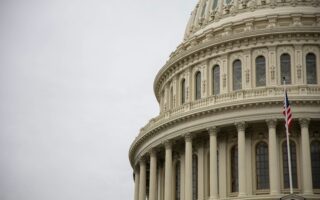EEOC Guidance on Employer Mandated COVID-19 Vaccines
By Kevin M. Mosher • Dec 23, 2020
In recent and exciting news, the Food and Drug Administration has approved two different COVID-19 vaccinations for Emergency Use Authorization. This development leaves many employers wondering if they can require their employees to get the vaccine, and what they should do if some of their employees refuse. Luckily, the Equal Employment Opportunity Commission recently publish some guidance on how employers can handle this issue without violating their employees’ rights under various equal employment opportunity laws.
Can employers require their employees to get vaccinated once a vaccine becomes publicly available?
Yes. Employers can set a qualification standard that includes “a requirement that an individual shall not pose a direct threat to the health or safety of individuals in the workplace” without violating the Americans with Disability Act, as Amended. Mandatory COVID-19 vaccines would fall into this category. However, there are some exceptions.
If an employee is unable to receive the vaccine due to disability…
If requiring all employees to receive a COVID-19 vaccine tends to screen out individuals with disabilities, the employer must show that the unvaccinated employee would pose a direct threat to the workplace due to a “significant risk of substantial harm to the health or safety of the individual or others that cannot be eliminated or reduced by reasonable accommodation.” This means that, like any other qualified disabled employee, employers must engage in the interactive process to explore a reasonable accommodation for employees who are unable to receive a COVID-19 vaccine due to a disability. This could involve permitting the employee to work exclusively in a certain area of the workplace so that they do not pose as great a threat to others or allowing the employee to work remotely. Like all disability-related accommodations, employers are not required to provide accommodations that pose an undue hardship on their business.
If an employee refuses the vaccine due to sincerely held religious beliefs…
Under Title VII of the Civil Rights Act of 1964, employers must also make good faith efforts to accommodate employees who are unwilling to receive the vaccine due to sincerely held religious beliefs, so long as the accommodations do not pose an undue hardship on the employer’s business. If an employer has an objective basis for questioning either the religious nature or the sincerity of a particular employee’s purported religious belief, practice, or observance, then the employer can request additional supporting documentation.
Thompson Coe and myHRgenius Tip of the Week is not intended as a solicitation, does not constitute legal advice, and does not establish an attorney-client relationship.










